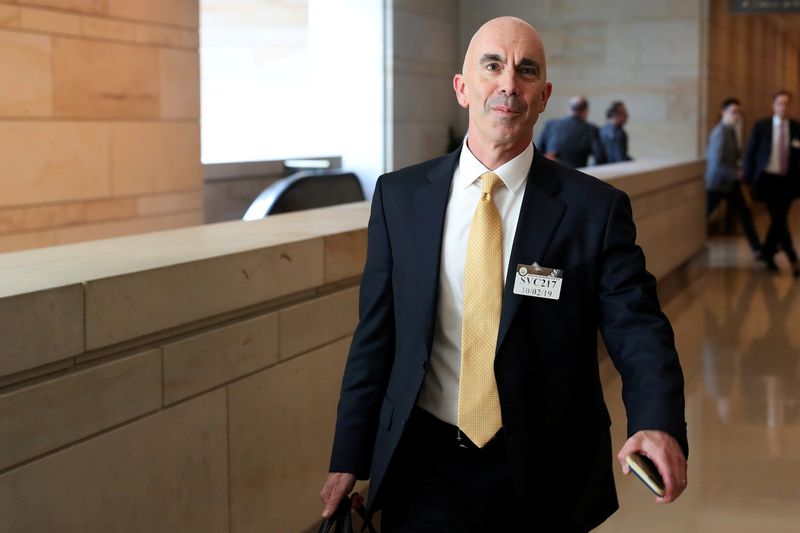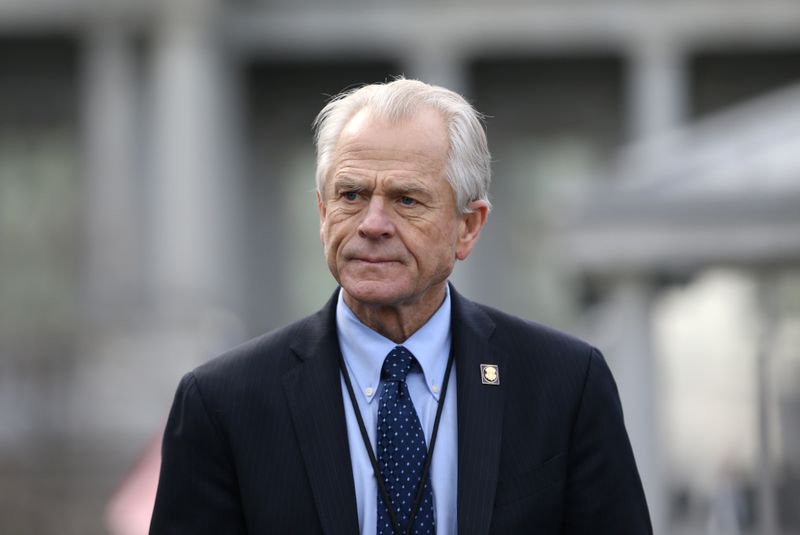By Sarah N. Lynch and Doina Chiacu
WASHINGTON (Reuters) - U.S. President Donald Trump's firing of the State Department's top internal watchdog "could be unlawful" if it was intended to retaliate against one of his investigations, House Speaker Nancy Pelosi said on Sunday.
Trump late Friday ousted Inspector General Steve Linick, the fourth inspector general he has fired since early April, following his February acquittal by the Republican-controlled Senate in his impeachment trial.
"The president has the right to fire any federal employee, but the fact is if it looks like it's in retaliation for something the IG, the inspector general, was investigating, that could be unlawful," Pelosi said on CNN's "State of the Union."
The top Democrats on the House and Senate Foreign Relations Committee on Saturday began a probe into the firing, saying it was their understanding that Secretary of State Mike Pompeo personally recommended Linick's sacking because the inspector general "had opened an investigation into wrongdoing by Secretary Pompeo himself."
A State Department spokesperson confirmed Linick had been fired but did not comment on Pompeo's role in the dismissal.
White House adviser Peter Navarro, meanwhile, downplayed the firing, saying that what Trump terms the "deep state" has caused problems and those who are not loyal must go.
"We've had tremendous problems with, some people call it the 'Deep State.' And I think that's apt. So I don't mourn the loss," Navarro, the director of the Office of Trade and Manufacturing Policy, said in an interview on ABC's "This Week."
"There's a bureaucracy out there. And there's a lot of people in that bureaucracy who think they got elected president and not Donald J. Trump."
Navarro did not offer any evidence to back up his claim.
Trump and his allies have long pushed conspiracy theories that target what they denounce as the "deep state," career civil servants meant to be nonpolitical who, they say, are working to undermine Trump.
Navarro's comments are likely to further inflame tensions with Democrats who have sounded alarms over what they call an escalating pattern by Trump of firing watchdogs whom he views as a threat to his presidency.
In April, Trump removed a top coronavirus watchdog, Glenn Fine, who was to oversee the government's financial relief response to the pandemic.
He also notified Congress that he was firing the inspector general of the U.S. intelligence community, Michael Atkinson, who was involved in triggering the impeachment investigation.
After Atkinson's firing, a bipartisan group of senators, including Republicans Charles Grassley, Susan Collins and Mitt Romney, called on Trump to provide a detailed written explanation for his decision.
Then earlier this month, Trump ousted Christi Grimm, who led the Department of Health and Human Services Office of the Inspector General, after accusing her of having produced a "fake dossier" on American hospitals suffering shortages on the frontlines of the coronavirus outbreak.
Experts say the pattern threatens the independent oversight function that inspectors general provide, particularly if watchdogs feel pressure to do the president's political bidding or risk being fired for refusing.
The system itself is now "weakening to the point of ineffectiveness," said Dan Meyer, a former executive director of Intelligence Community Whistleblowing and Source Protection.
Some Republicans in Congress have rushed to defend Trump's decision to oust Linick.
In an interview on CNN's "State of the Union," Senate Homeland Security and Governmental Affairs Committee Chairman Ron Johnson said he felt "not all inspector generals are created equal" and noted they "serve at the pleasure of the president."
(This story corrects title in 17th paragraph to show Meyer was a former executive director)

